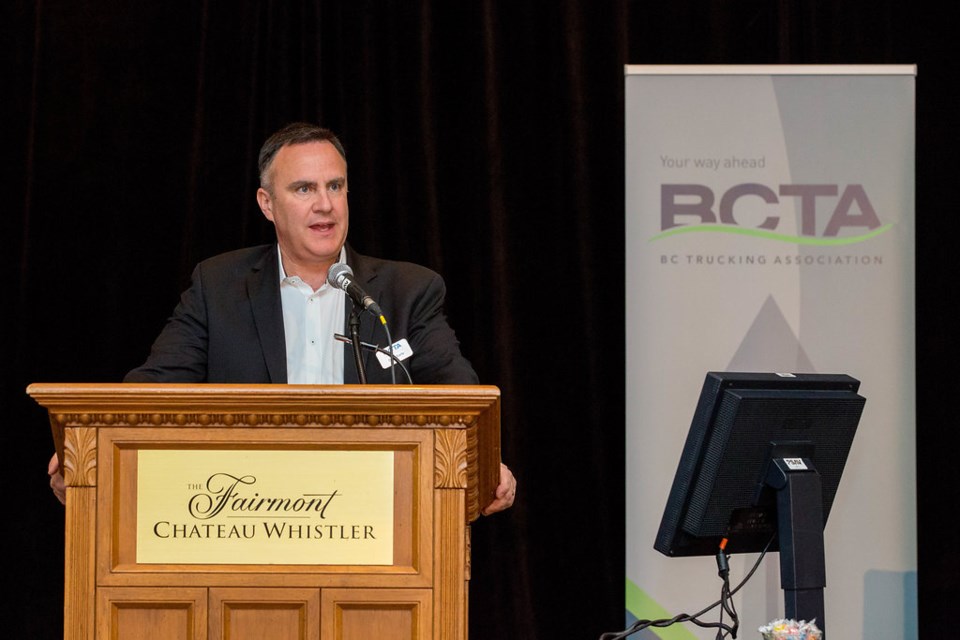It’s a long and winding road facing the BC trucking sector. But the province’s transportation industry, so vital to the overall economy, has a serious problem just around the corner – and knows it.
“In BC, the number one greenhouse gas emitter is transportation and we are the worst,” laments Dave Earle, president and CEO of the BC Trucking Association (BCTA). With between 65,000 and 70,000 commercial vehicles on the road in British Columbia, those trucks account for the same GHG emissions as approximately 2.3 million light vehicles.
“Clearly, this is something that we have turn our minds to and start grappling with,” says Earle.
Amid tight provincial finances and a razor thin budget surplus, the BCTA has its fingers crossed that the provincial government will extend a partnership with his group to continue the Heavy-duty Vehicle Efficiency Program.
Under CleanBC, the joint initiative is intended to lower greenhouse gas emissions, while helping fleets spend less money on fuel.

“There is now a clear understanding that we are many, many years away from real practical solutions,” says Earle, pointing out that until recently, there was a huge misconception that GHG-reducing products were readily available. With electric vehicle technology not yet offering a viable alternative to long-haul, 500-600 horsepower semi-tractors, Earle asserts that the question facing truck operators and transport companies is what can be done now?
“There is an appetite to do something – the question becomes what can we do that’s smart,” asks Earle.
With heavy-duty vehicles producing approximately 35% of GHG emissions from road transportation in BC, fuel is one of the highest operating costs for truck companies.
Earle recalls that GHG concerns weren’t on the group’s radar in his early days with the BC Trucking Association:
“If we don’t start moving on this on our own, we will be forced.”
Earle points out a significant shift in the past 12 months, with trucking companies expressing a growing interest in electric vehicles and alternative fuels.
While the BC government has committed $1.4 million annually to cost-share the purchase and installation of fuel-saving equipment for heavy-duty vehicles, Earle readily admits that tracking emission reductions won’t be easy. That said, he is confident that scientific evidence over the next two to three years will be undisputable.
“There’s not one trucker I’ve met, not one driver, not one carrier who isn’t looking for ways to save the Earth,” says Earle, “truckers are environmentalists too.”
Dave Earle is under no illusion: government funding won’t last forever.
“We’ve said to members that if you have a better mousetrap, if you have an idea, by all means bring it forward,” says Earle, expressing the trucking industry’s willingness to consider new ideas and inventions to improve performance, reduce emissions and save money.
As always, I welcome your comments and criticism on Twitter @kammornanchor and email [email protected].
Bob Price is a veteran B.C. broadcaster who anchored the morning news on CHNL radio in Kamloops for the past 30 years. Bob is also a past Webster Award winner whose previous stops included Vancouver and Calgary.
SWIM ON:
- Bob Price on the ominous signs of the upcoming flood season.
- Welcome to the Carbon Catch-22: crazy if you support hydrocarbons, crazier if you don't, writes Terry Etam.
- Blair King sat down with Rick Cluff to discuss the price of gas, and allegations of gouging.


